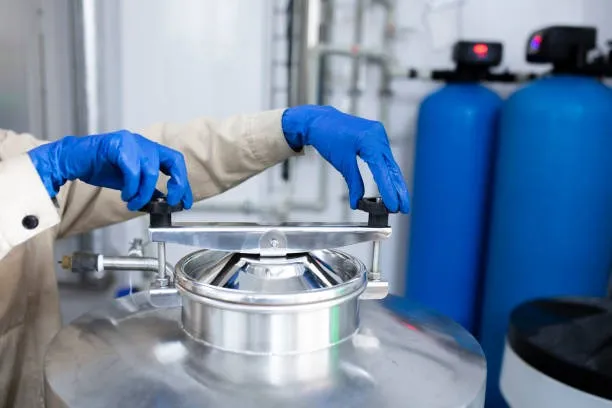
Boiler Replacement in Fawn Grove, PA
Replacing a failing boiler is one of the most impactful home improvements for winter comfort and long‑term energy savings in Fawn Grove, PA. With cold, humid winters and many older homes in southern York County, an inefficient or unreliable boiler can mean higher fuel bills, uneven heat, and repeated repair calls.
When a boiler replacement is recommended
Consider replacing your boiler when you experience one or more of the following:
- Repeated breakdowns and rising repair costs year after year
- Age over 15 to 20 years for standard cast‑iron or non‑condensing units
- Uneven heating, cold spots, or noisy operation despite recent repairs
- Frequent short cycling or difficulty maintaining set temperature
- Corrosion, cracking in the heat exchanger, or persistent leaks
- Fuel‑use and bills that climb even after maintenance
- Desire to upgrade to high‑efficiency condensing models or add modern controls/zoning
In Fawn Grove’s colder months, even minor efficiency losses translate to larger bills and comfort problems, so timely replacement often pays back faster than in milder climates.
Common boiler replacement scenarios in Fawn Grove, PA
- Replacing an old cast‑iron, non‑condensing boiler with a high‑efficiency condensing boiler
- Converting fuel type (oil to propane or natural gas where available) to improve reliability and reduce maintenance
- Upgrading hydronic systems for better zoning and indoor comfort in older homes
- Right‑sizing a new boiler after home renovations or added living space
- Replacing a boiler due to safety concerns like combustion or venting failures
Evaluation and diagnostic process
A professional replacement begins with a thorough evaluation of your existing system and home:
- Visual inspection of boiler, piping, venting, controls, and expansion tank
- Combustion and flue analysis if the current unit is gas or oil
- Assessment of distribution components (radiators, baseboards, or in‑floor tubing)
- Measurement of household heating patterns and any comfort complaints
Next comes a heat‑load calculation to determine the proper boiler size. Rather than matching the old unit’s rating, a modern load calculation accounts for insulation, window area, infiltration, and the actual heat required in each room. Right‑sizing prevents cycling, reduces fuel use, and extends equipment life.
Selecting an energy‑efficient replacement
For Fawn Grove homes, energy‑efficient options often include:
- Condensing boilers with modulating burners (higher efficiency at partial loads)
- Combination (combi) boilers for homes wanting on‑demand domestic hot water
- High‑efficiency cast‑iron or stainless steel boilers for long service life
- Smart controls and zoning to reduce run times and increase comfort
Energy‑efficient condensing boilers recover heat from flue gases and commonly improve fuel efficiency by 15–35% compared to older non‑condensing models, depending on the baseline system and usage pattern.
Removal and disposal of the old unit
Safe removal includes:
- Draining and properly neutralizing or disposing of boiler water (addressing glycol if present)
- Disconnecting fuel lines, electrical, and venting safely
- Removing the old unit and transporting it for recycling or approved disposal
- Addressing any oil tank or fuel storage decommissioning if fuel type changes
Licensed technicians follow local regulations for hazardous waste and recycling to ensure safe disposal.
Installation steps, permits, and code compliance
A proper replacement follows this sequence:
- Obtain required mechanical and plumbing permits for the job
- Prepare piping, supports, and combustion air/venting upgrades as needed
- Install the new boiler, flue, and fuel connections to code
- Pressure test piping, purge air, and fill the system with proper water treatment
- Commission the boiler: tune combustion, set controls, balance zones, and perform safety checks
- Final inspections by local authorities where required
Pennsylvania and York County codes govern venting, combustion air, and fuel piping. Permits and inspections protect your safety and ensure insurance compliance.
Expected timelines and costs
- Typical replacement for a like‑for‑like residential boiler: 1–3 days (single‑family homes)
- More complex installs (fuel conversions, venting relocation, hydronic upgrades, or zoning work): several days to a week
- Costs vary by unit type, fuel source, labor, and any required piping or venting upgrades; total investment depends on system complexity and efficiency level
Because Fawn Grove homes range from newer builds to older farmhouses, timeline and scope depend on home age and distribution system condition.
Warranty, financing, and incentives
- New boilers usually carry manufacturer parts warranties (commonly 5–10 years on key components); labor warranties may be offered separately
- Extended warranties and service plans can provide additional peace of mind
- Financing options are often available to spread replacement costs over time
- Homeowners may qualify for utility rebates or state/federal incentives for high‑efficiency equipment; eligibility depends on program rules at the time of purchase
Projected energy savings and payback
- Replacing an older non‑condensing boiler with a modern condensing unit typically reduces fuel use by approximately 15–35%, though actual savings depend on your current system, fuel costs, and how you heat your home
- In Fawn Grove’s colder winters, savings are magnified by higher seasonal fuel consumption, which can shorten payback periods
- Upgrading controls and adding zoning often multiplies savings by reducing runtime and delivering heat only where needed
Long‑term benefits and maintenance advice
A proper replacement improves comfort, reliability, and indoor safety while lowering operating costs. To protect your investment:
- Schedule annual boiler tune‑ups and combustion checks
- Maintain water quality with appropriate treatment to prevent corrosion and deposits
- Check expansion tanks, pressure relief valves, and circulator pumps regularly
- Upgrade controls and thermostats to maximize efficiency and comfort
Replacing a boiler is a technical decision with long‑lasting effects on home comfort and energy use. For Fawn Grove homeowners, choosing the right-sized, high‑efficiency system and ensuring professional installation and permitting is the best way to secure safe, efficient heating for many winters ahead.


Enjoy flexible financing options that make upgrading or repairing your HVAC system easy and budget-friendly.










